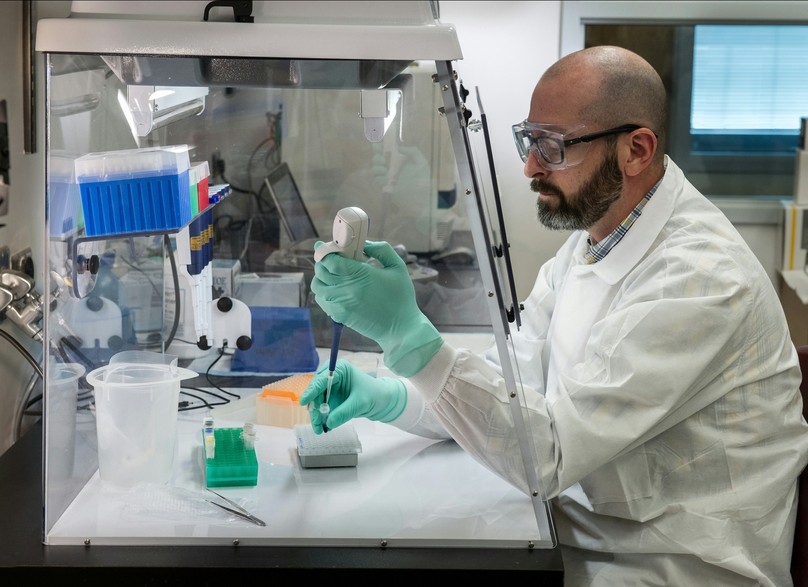The adoption of electronic laboratory notebooks (ELNs) is rising within academic research environments. These digital tools offer numerous advantages, such as improved data organization, collaboration, and accessibility. Nonetheless, before academic researchers switch from traditional paper notebooks to ELNs, it's crucial to thoroughly weigh several key factors.
Data Security and Compliance
When integrating electronic laboratory notebooks into academic research, a paramount consideration revolves around data security and adherence to compliance standards. Given that educational institutions handle sensitive information, such as intellectual property and personally identifiable data, selecting an ELN platform that aligns with pertinent data protection regulations is imperative. Robust security features must be in place to shield research data from unauthorized access or breaches.
Ease of Use and Adaptability
Another key consideration is the ELN platform's ease of use and adaptability. Academic researchers come from diverse backgrounds and levels of technical proficiency. Hence, it is essential to select an ELN solution that is intuitive and user-friendly, allowing researchers to quickly learn and adapt to the new system without significant disruptions to their workflow.
Integration with Existing Systems
Before adopting an ELN, academic research laboratories should assess its compatibility and integration capabilities with existing systems and software applications used in their workflow. Seamless integration with laboratory instrumentation, data analysis tools, and other research management systems is essential to maximize efficiency and productivity.
Collaboration Features
Collaboration is a cornerstone of academic research, and electronic laboratory notebooks offer advanced features to facilitate seamless collaboration among research team members. Look for ELN platforms that provide real-time collaboration tools, such as shared notebooks, commenting, and version control, to enable researchers to collaborate effectively regardless of physical location.
Cost and Scalability
Cost is always a significant factor in any decision-making process, and the adoption of ELNs in academic research is no exception. Evaluate the cost of implementing and maintaining the ELN platform, including licensing fees, training expenses, and ongoing support costs. Additionally, the ELN solution's scalability should be considered to accommodate the research laboratory's growing needs over time.
Training and Support
Effective training and ongoing support are essential for the successful implementation and adoption of ELNs in academic research. Choose an ELN provider that offers comprehensive training programs, documentation, and responsive customer support to assist researchers in overcoming any challenges or issues encountered during the transition period and beyond.
Streamlined Lab Organization and Collaborative Editing
Genemod's ELN solution, or Genemod AI, offers a comprehensive solution for academic research laboratories, enabling streamlined lab organization and collaborative editing. With features such as experiment tracking, data visualization, and team collaboration tools, Genemod AI empowers researchers to focus on their work while enhancing productivity and efficiency.
Customization and Flexibility
Every academic research laboratory has unique requirements and workflows. Therefore, it is crucial to choose an ELN platform that offers customization options and flexibility to adapt to the specific needs of the research team. Look for customizable templates, user-defined fields, and workflow automation capabilities that allow researchers to tailor the ELN to their workflow and research objectives.
Data Backup and Recovery
Data loss can be disastrous for academic research projects. Therefore, selecting an ELN solution that provides robust data backup and recovery mechanisms is essential. Look for platforms that offer automatic backups, version history tracking, and disaster recovery options to ensure the integrity and continuity of research data, even in the event of unforeseen technical issues or disasters.
Regulatory Compliance
Academic research laboratories are often subject to various regulatory requirements and standards, particularly in life sciences and healthcare. When choosing an ELN platform, ensure it complies with relevant industry regulations and standards, such as Good Laboratory Practice (GLP) and 21 CFR Part 11, to support regulatory compliance and audit readiness.
User Support and Community
The availability of user support and a thriving community can significantly enhance the adoption and usage of an ELN platform in academic research. Look for ELN providers offering responsive customer support channels, including email, phone, and live chat, to address any technical issues or queries promptly. Additionally, consider joining user forums and online communities or attending user conferences to connect with fellow researchers and share best practices.
It’s Time to Visualize Your Inventory
In addition to electronic lab notebooks, efficient inventory management is essential for academic research laboratories. Genemod offers the best lab inventory management software, empowering researchers to easily track and manage laboratory supplies, reagents, and equipment. Genemod's solution helps streamline lab operations and ensure efficient resource utilization with features such as barcode scanning, expiration date tracking, and customizable alerts.
Ready to revolutionize your academic research workflow? Start with our ELN and experience the benefits of streamlined lab organization, collaborative editing, and advanced data management. Enhance your research laboratory's efficiency, compliance, and scalability with our comprehensive solutions.
Join us today and unlock the full potential of your research endeavors.















